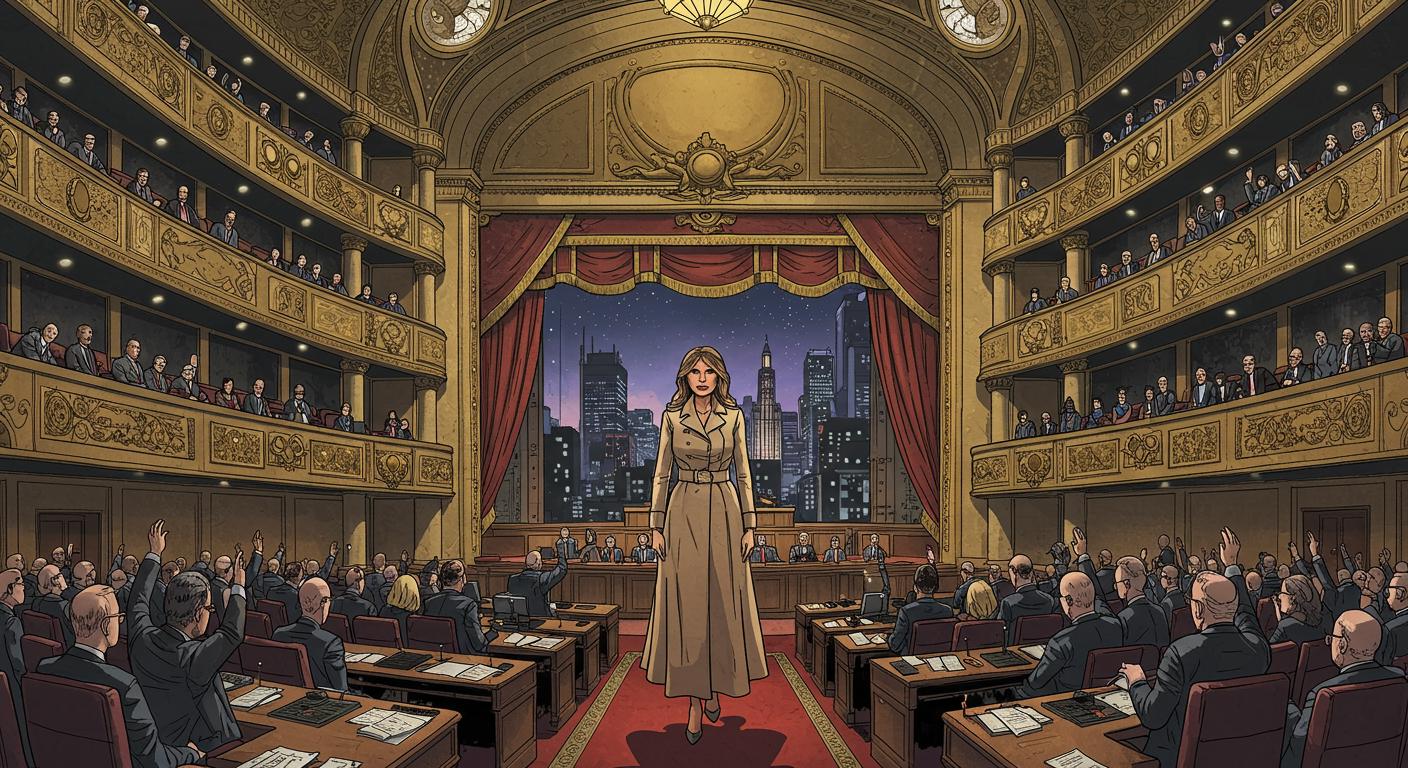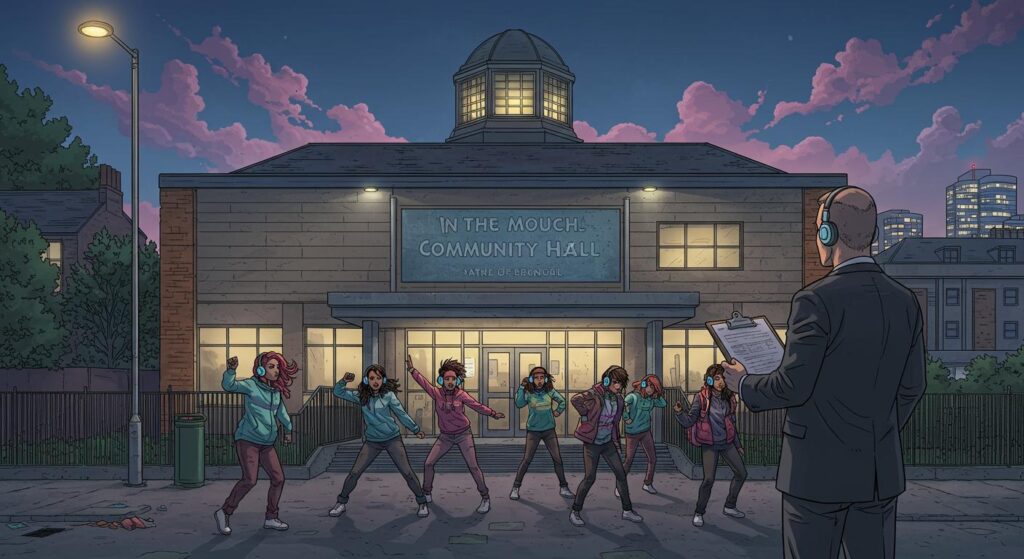Is there anything quite so strange as the persistence of ceremonial naming? Especially when the new moniker lands with the grace of a cat in a bathtub. This week, Capitol Hill delivered a gem for those attuned to the oddities of headline-making: the House Appropriations Committee advanced a proposal to rechristen the Kennedy Center’s opera house as the “First Lady Melania Trump Opera House.” If saying it feels awkward, rest assured—reading the details is just as much so.
The Vote Heard ‘Round the Orchestra
As USA TODAY reports, this little overture was initially slipped into a larger appropriations bill as an amendment by Idaho Republican Mike Simpson, who offered the renaming as an “excellent way to recognize [Melania Trump’s] support and commitment to promoting the arts.” The Committee approved the measure in a 33-25 vote. For those tracking the finer details, Scripps News specifies that while no Republicans voted against the measure, Democrat Rep. Marie Gluesenkamp Perez—popularly considered a moderate—crossed the aisle to vote in favor.
The measure, currently folded inside government funding legislation intended to head off a shutdown, would, if fully approved, emblazon the title “First Lady Melania Trump Opera House” over the Kennedy Center’s main performing venue. Still, Scripps News points out, both the full House and the Senate must approve the bill for the renaming to actually happen. Is this legislative suspense or simply intermission?
An Opera of Political Theater
While cultural institutions often resist such abrupt identity shifts, this isn’t the first unusual salute floated recently. According to facts grouped by the New York Post, the current Congress has seen a flurry of proposals to immortalize the Trump era—from putting the president’s face on Mount Rushmore and the $100 bill, to giving him a dedicated national holiday or even dubbing DC’s subway the “TRUMP TRAIN.” For those who study naming conventions, you have to wonder: how long before the nation’s pigeon population is petitioned to honor the family too?
As detailed in the same report, the Kennedy Center itself has undergone notable upheaval during President Trump’s second term. In February, he dismissed most of the center’s board, installed himself as chairman, and placed an ally, Ric Grenell, in the president’s seat. Previous longstanding traditions, like a bipartisan board, were swept aside. Drag performances have been publicly denounced, and even musicals once deemed untouchable—“Hamilton,” for instance—have found themselves in the presidential crosshairs. It’s a scenario that might look familiar to keen-eyed fans of obscure institutional histories: when names change, governance rarely lags far behind.
Sixfold Funding and Carte Blanche Critiques
Behind all the theatrical gestures lies some truly eye-catching arithmetic. USA TODAY and Scripps News both note that Congress has approved $256.7 million for Kennedy Center improvements by 2029—about six times the center’s usual appropriation. Rep. Chellie Pingree, the top Democrat on the appropriations subcommittee, has argued that this “carte blanche” approach extends to board appointments and now, apparently, naming rights. The Scripps report clarifies that this surge in funding request surfaced in May under the new Trump-chosen leadership at the center, further fueling debate over intent versus tradition.
It’s worth pausing to ask what, exactly, Melania Trump’s documented contributions to the arts have been. The rationale, echoed by Rep. Simpson and cited by all outlets, is her “support and commitment to promoting the arts and humanities.” But, as anyone who’s dug through event calendars and archival programs at the Kennedy Center may suspect, visible records of her deep engagement are sparse. Sometimes a name is more about the audience than the honoree—a recurring pattern in history, for those keeping score on odd renamings past.
Names, Legacies, and the Art of the Uncomfortable Tribute
If the proposal succeeds, future patrons will enter a concert hall named for a first lady very much alive, relatively recently in office, and with a legacy in the arts that most would politely describe as “to be determined.” It’s the sort of act that might give pause to those who recall the Kennedy Center’s original intent: to honor a president whose love for the arts was a matter of public record, not political expediency.
Still, perhaps the proposal will meet its dramatic conclusion in the Senate—Scripps News, once more, underscores that the final script is far from written, with negotiations ongoing and possible edits still on the table.
Will the renaming pass? Will playbills—and tourist trivia apps—soon parade the new name? Or will this instance join the quietly shelved archives of “almost renamings,” living on only as a future curiosity for people like me, forever fascinated by these little odes to the peculiarities of power, memory, and the never-ending art of the awkward tribute?







